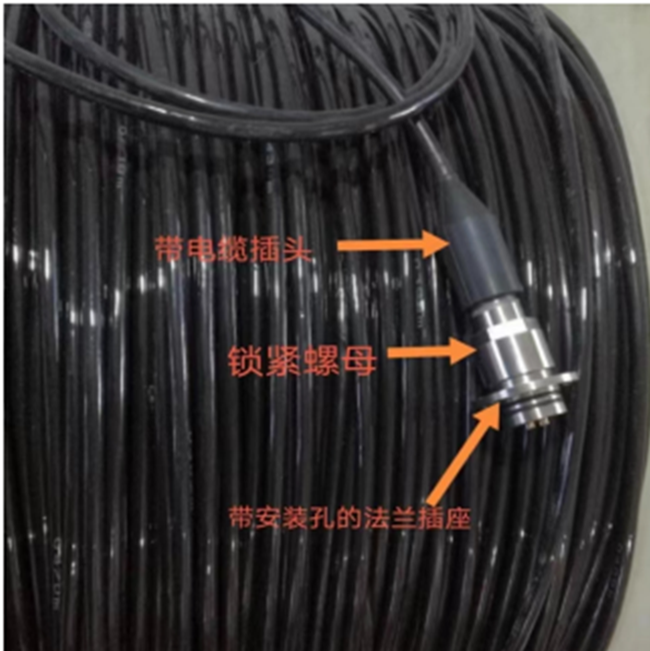Hubei Hannas Tech Co.,Ltd-Professional Piezoceramic Elements Supplier
Hot Keywords:
- All
- Product Name
- Product Keyword
- Product Model
- Product Summary
- Product Description
- Multi Field Search
Views: 0 Author: Site Editor Publish Time: 2024-05-20 Origin: Site









Underwater pluggable connectors play a crucial role in the functionality and efficiency of underwater systems and equipment. From enabling seamless connections to ensuring reliable performance, these connectors are essential for a wide range of applications in underwater environments. In this article, we will explore the different types of underwater pluggable connectors available, the benefits they offer in terms of convenience and efficiency, and important considerations to keep in mind when selecting the right connector for your specific needs. Whether you are working on underwater robotics, marine research, or offshore energy projects, understanding the importance of these connectors and how to choose the best one for your application is key to success in the underwater world.
Underwater pluggable connectors are essential components in various underwater applications, allowing for the seamless connection of cables and devices in harsh underwater environments. These connectors come in different types, each designed to meet specific requirements and challenges.
One common type of underwater pluggable connector is the electrical connector, which is used to transmit power and signals between different underwater devices. These connectors are typically made of corrosion-resistant materials to withstand the harsh conditions of the ocean floor. Another type is the fiber optic connector, which is used to transmit data through light signals. Fiber optic connectors are essential for high-speed data transmission in underwater communication systems.
In addition to electrical and fiber optic connectors, there are also hybrid connectors that combine both power and data transmission capabilities. These connectors are versatile and can be used in a wide range of underwater applications, from underwater robotics to offshore oil and gas exploration.
Underwater pluggable connectors offer a multitude of benefits for various industries and applications. These connectors are specifically designed to withstand harsh underwater environments, making them ideal for use in marine research, offshore oil and gas exploration, and underwater communication systems. One of the key advantages of using underwater pluggable connectors is their ability to provide a secure and reliable connection in underwater conditions, ensuring seamless communication and data transmission.
Additionally, these connectors are easy to install and maintain, saving time and resources for companies operating in underwater settings. Their plug-and-play design allows for quick and efficient connections, reducing downtime and increasing productivity. Furthermore, underwater pluggable connectors are built to withstand high pressures and corrosion, ensuring long-term performance and durability in challenging underwater environments.
When it comes to choosing underwater pluggable connectors, there are several important considerations to keep in mind. These connectors play a crucial role in ensuring reliable and efficient underwater communication and power transmission. One of the key factors to consider is the depth at which the connectors will be used. Different connectors are designed to withstand varying levels of water pressure, so it is essential to select connectors that are rated for the specific depth of your underwater application.
Another important consideration is the type of materials used in the construction of the connectors. It is important to choose connectors that are made from high-quality, corrosion-resistant materials to ensure long-term reliability in harsh underwater environments. Additionally, the connectors should be designed to provide a secure and watertight connection to prevent any water ingress that could potentially damage the equipment.
In addition to these factors, it is also crucial to consider the electrical and data transmission requirements of the underwater application. The connectors should be able to handle the necessary voltage and current levels, as well as provide a reliable connection for data transmission. It is important to choose connectors that are compatible with the specific communication protocols and standards used in the underwater industry.
Underwater pluggable connectors are vital for communication and power transmission in underwater settings. These connectors ensure efficient operations for underwater devices, supporting the success of various projects and missions. Their benefits include secure connections, easy installation, and low maintenance, making them essential for industries needing reliable communication and data transmission underwater. With their durability and robust design, underwater pluggable connectors offer a cost-effective solution for companies working in underwater environments. When selecting these connectors, it is crucial to prioritize reliability, durability, and compatibility with specific underwater application requirements to ensure a dependable and long-lasting connectivity solution.
Products | About Us | News | Markets and Applications | FAQ | Contact Us